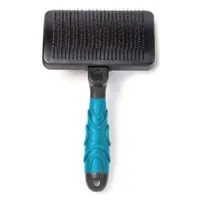Everything you need to know about longhaired rabbit breeds and how to care for them.
Longhaired rabbit breeds need extra special love and attention to thrive. Here is our vet-approved guide on how to care for them.
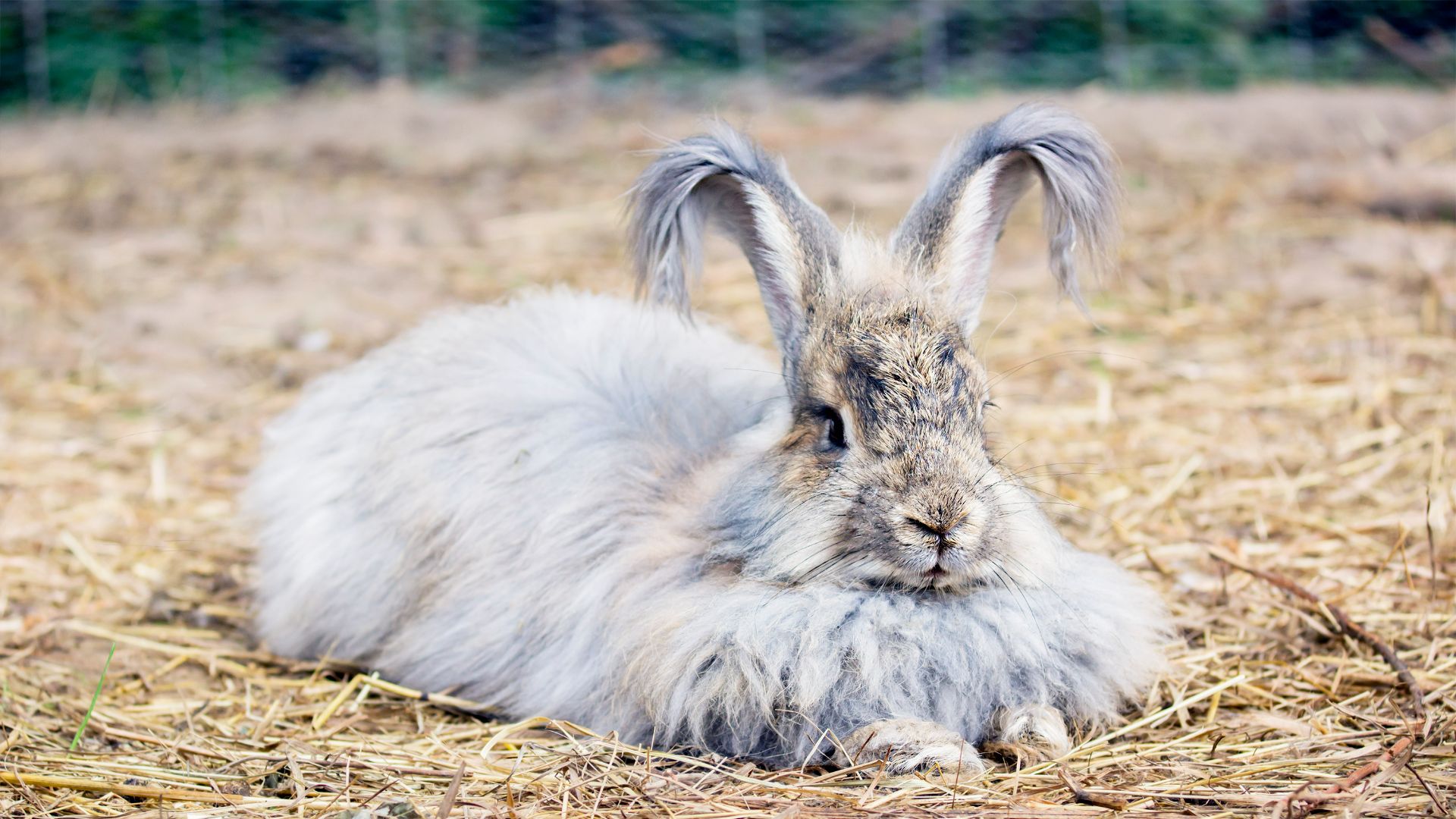
From the American Fuzzy Lop to the Swiss Fox there are several longhaired rabbit breeds. The fur of these bunnies or wool, as it is sometimes called, can vary between each different breed but it will still require dedicated time from you to keep it looking its best.
You will definitely need to invest in one of the best rabbit brushes to maintain their luscious locks. Longhaired rabbits require much more attention and care in the grooming department. But don’t stress, you can check out our guide to rabbit grooming which is packed with tons of helpful tips and tricks on how to groom your rabbit.
Now, let’s check out some of the most common longhaired rabbit breeds and all the ins and outs of caring for them.
Popular longhaired rabbit breeds
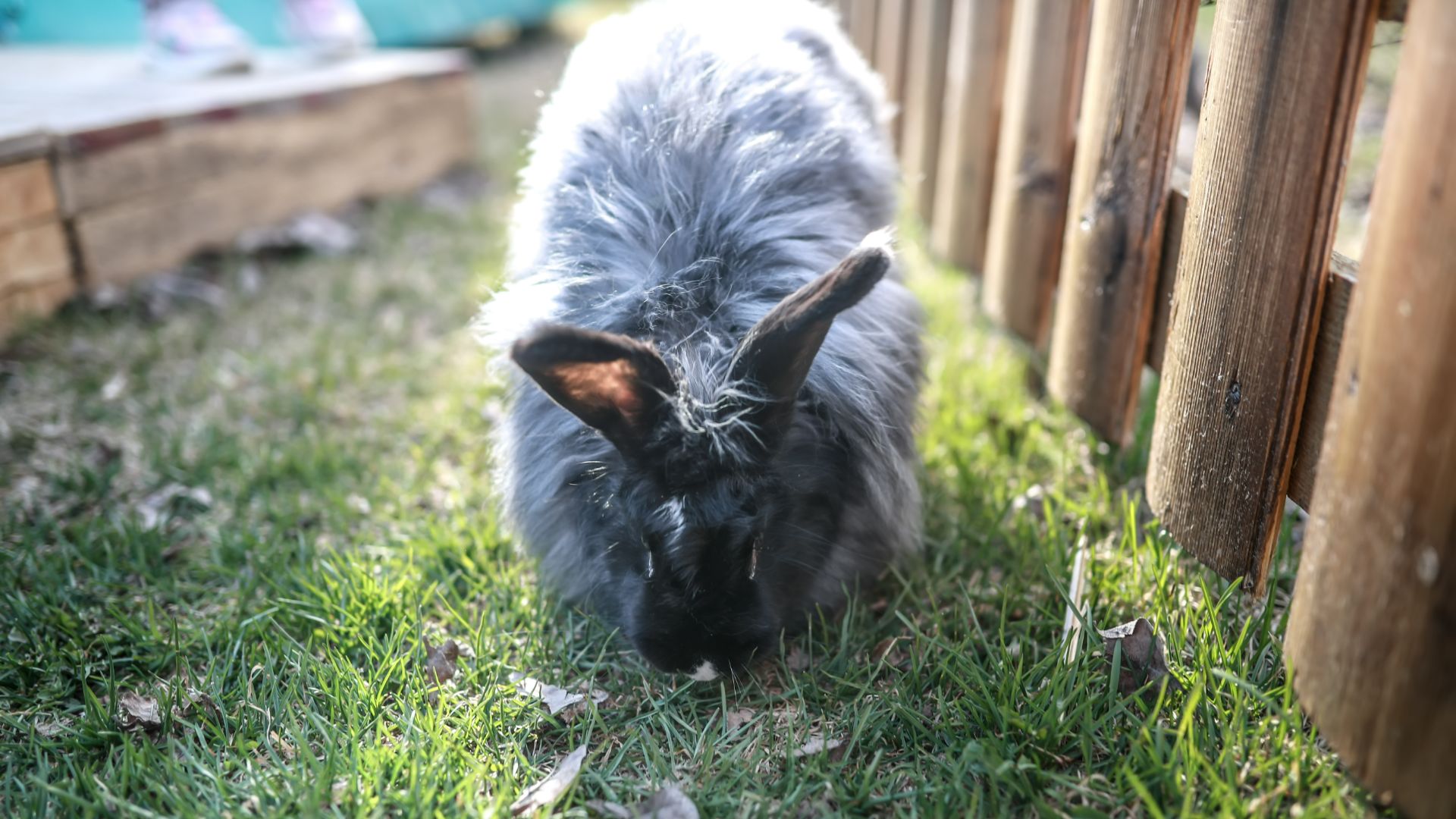
- Angora: These rabbits have fur that is at least 60mm long, and in some cases longer. Their ears stand upright and are around 4-5 inches in length, with fur tassels on the end. They come in a variety of colors and weigh 6-8lbs when fully grown. As well as the English Angora, there is also the French Angora whose fur is slightly harsher than the English version.
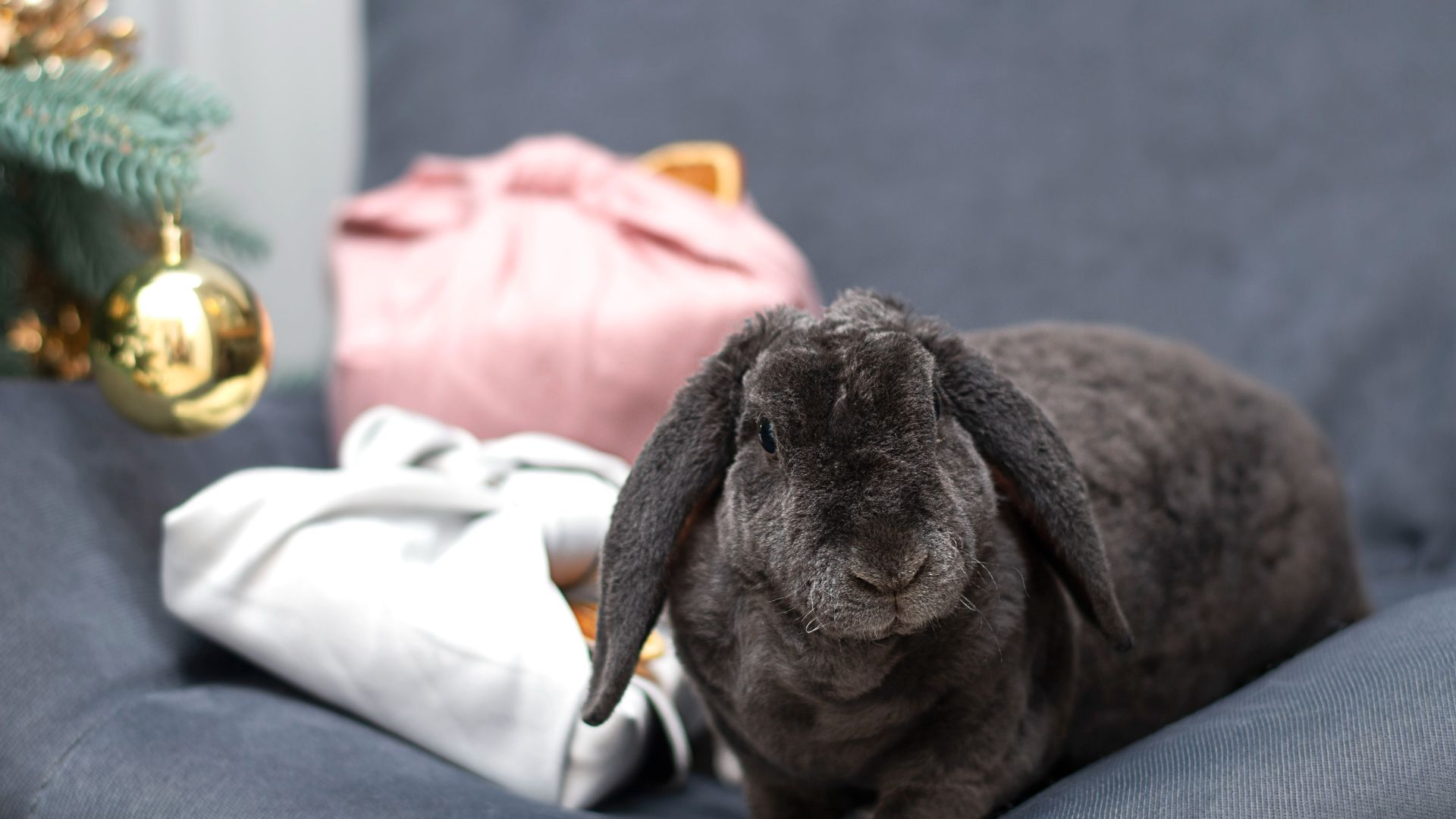
- Cashmere Lop: The Cashmere Lop rabbit is a medium-sized rabbit with long fur and lop ears. There is also a Miniature Cashmere Lop. The breed comes in many different colors and weighs around two pounds when fully grown.
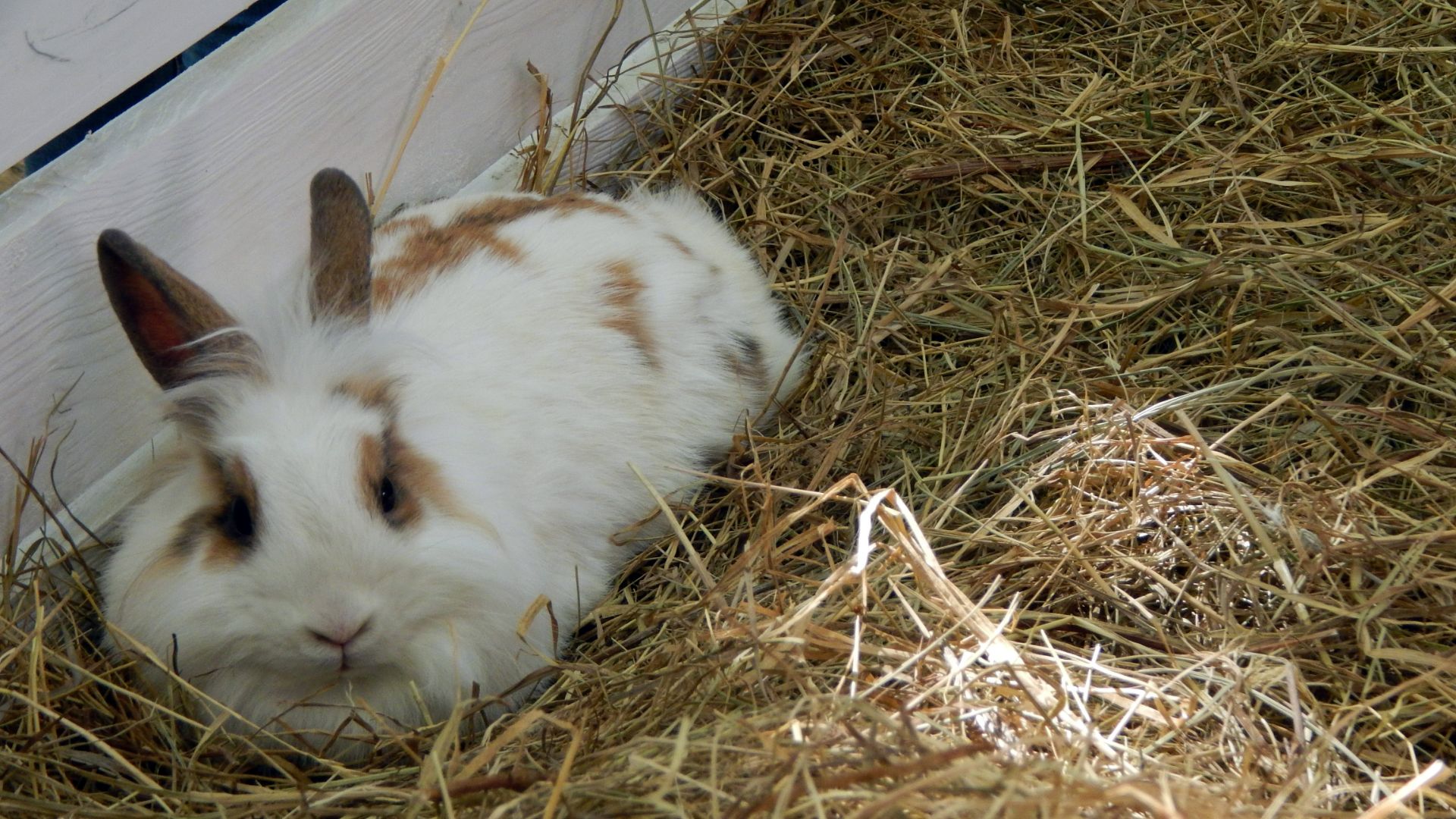
- American Fuzzy Lop: This breed is recognized by the American Rabbit Breeders Association (ARBA). Their fur is similar to that of the Angora, although shorter in length. They weigh up to two pounds when fully grown and have lop ears.
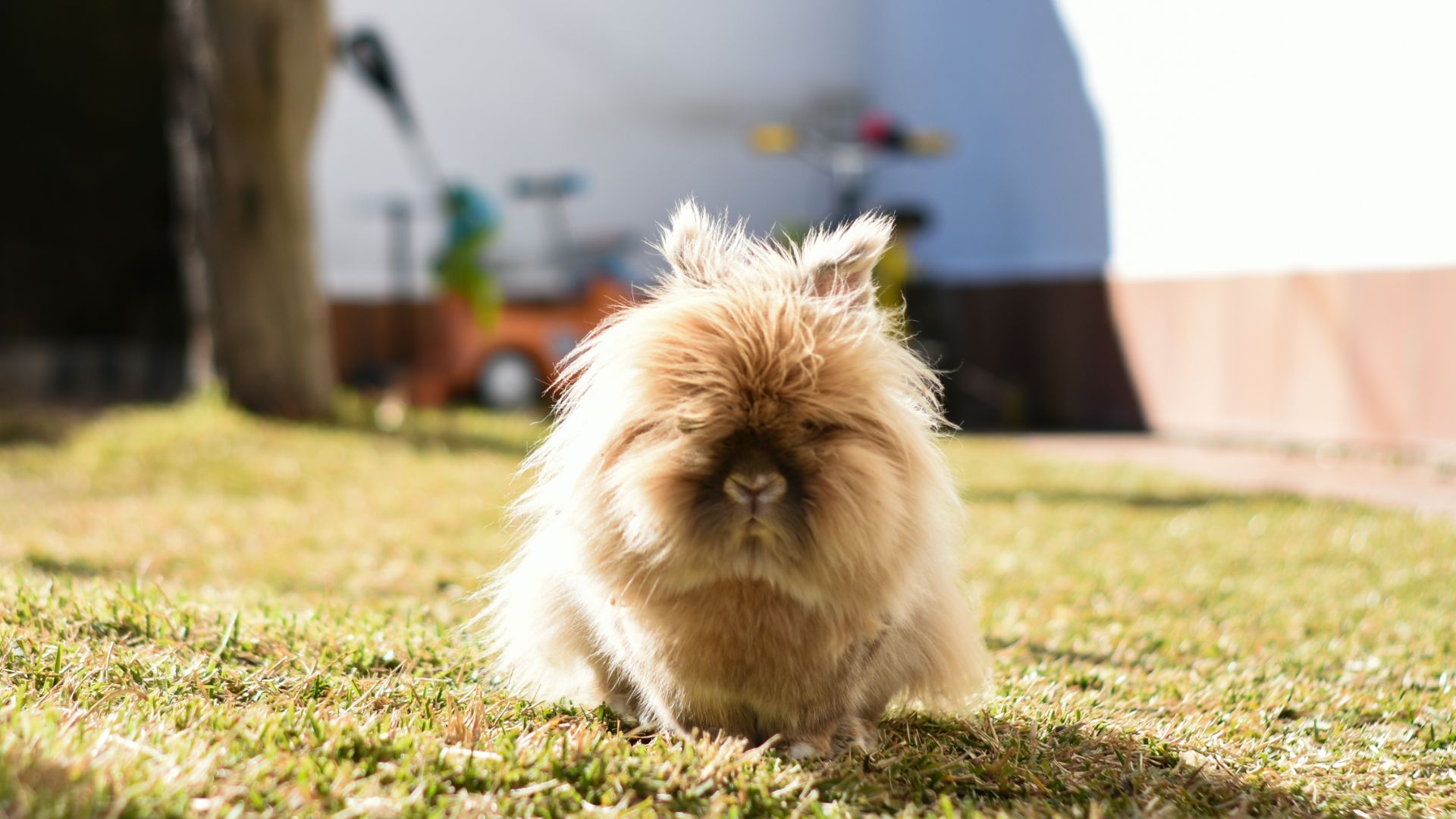
- Lionhead: Lionhead rabbits are relatively small, and weigh approximately two pounds when fully grown. Their ears stand upright and they come in a variety of colors. Single-mane Lionheads have long fur around their head and neck, whereas the mane on a double mane Lionhead rabbit covers more of the head, and they have wool on the flank of their hind legs. Single mane Lionheads can lose their mane as they mature.
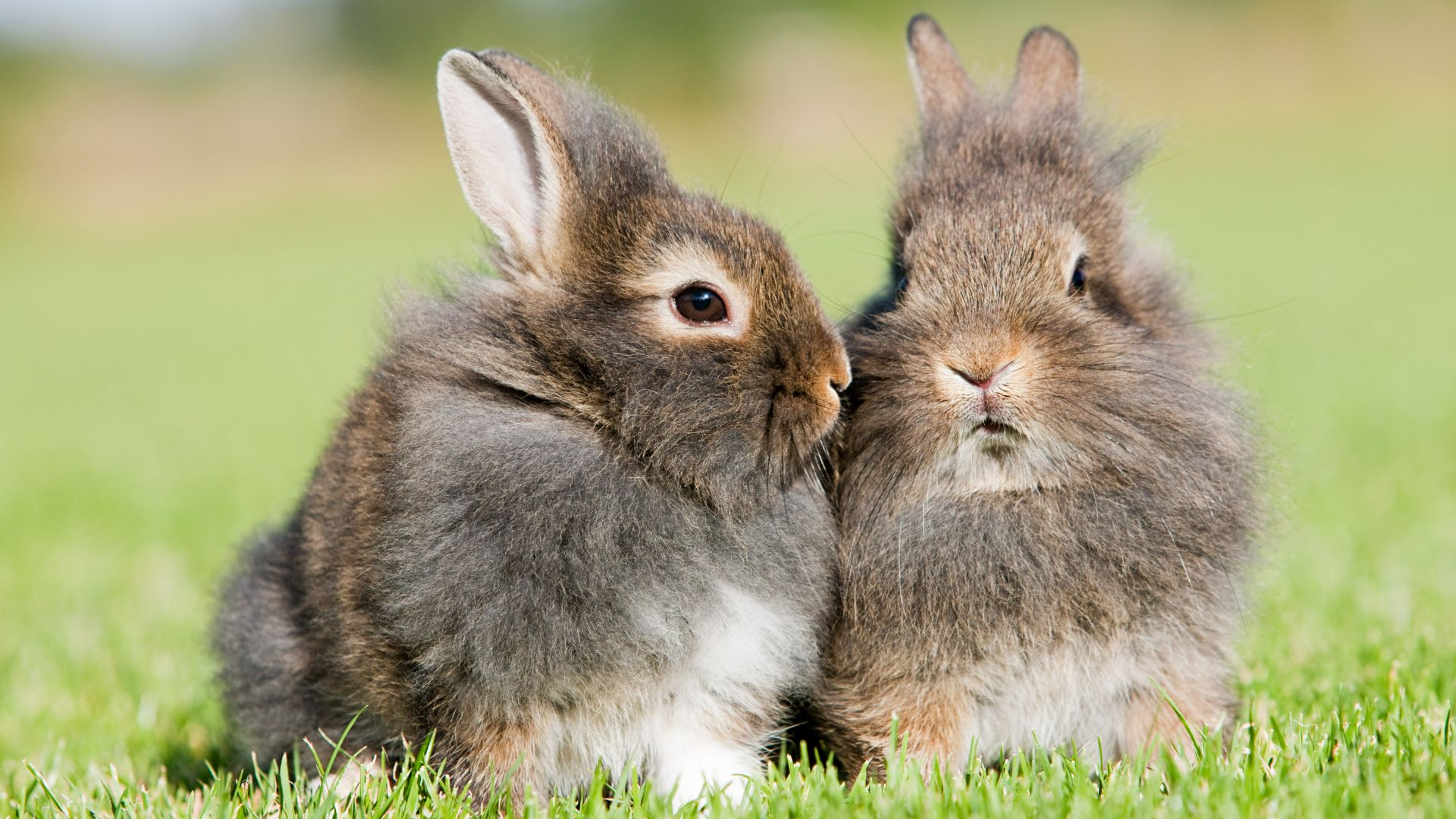
- Swiss Fox: Adult Swiss Fox rabbits weigh around five pounds when fully grown. Their fur grows to 50-70mm, except on the head, belly, and legs where it is shorter. They come in a variety of colors.
Can rabbits live alone? Well, like all breeds of rabbits, longhaired rabbits need a suitable companion (both rabbits should be neutered), a large and interesting enclosure providing physical and mental stimulation, a diet consisting of at least 85% hay/grass, and regular veterinary checks, including vaccination.
How to groom longhaired rabbits?
Grooming of longhaired rabbits needs to be carried out daily to prevent mats from forming. Use combs and soft brushes as opposed to brushes with metal teeth as these will scratch and damage the rabbit’s skin.
Follow these steps...
- Place the rabbit on a non-slip rubber mat or towel, preferably on the floor so they cannot jump and injure themselves
- Ideally, have someone to help gently restrain the rabbit for you
- Start with the head and work backward toward the tail
- Part the fur with a comb, grooming from the skin to the end of the fur, covering around 1 inch at a time
- Repeat until the whole of the top of the rabbit has been covered
- Carefully lift their front legs off the ground and with a brush over the rabbit’s tummy and neck area
- If the fur on the rabbit's legs is long, groom with a comb.
Never turn a rabbit on their back to groom them. This places them in a trance, which is a stressful and fearful state for rabbits.
Get the best advice, tips and top tech for your beloved Pets
Master Grooming Tools Self-Cleaning Slicker Pet Brush
Perfect for small animals such as rabbits, this brush is ideal for combing through your furry pet and removing loose hair, dirt, mats, and tangles.
Should I clip or bathe my longhaired rabbit?
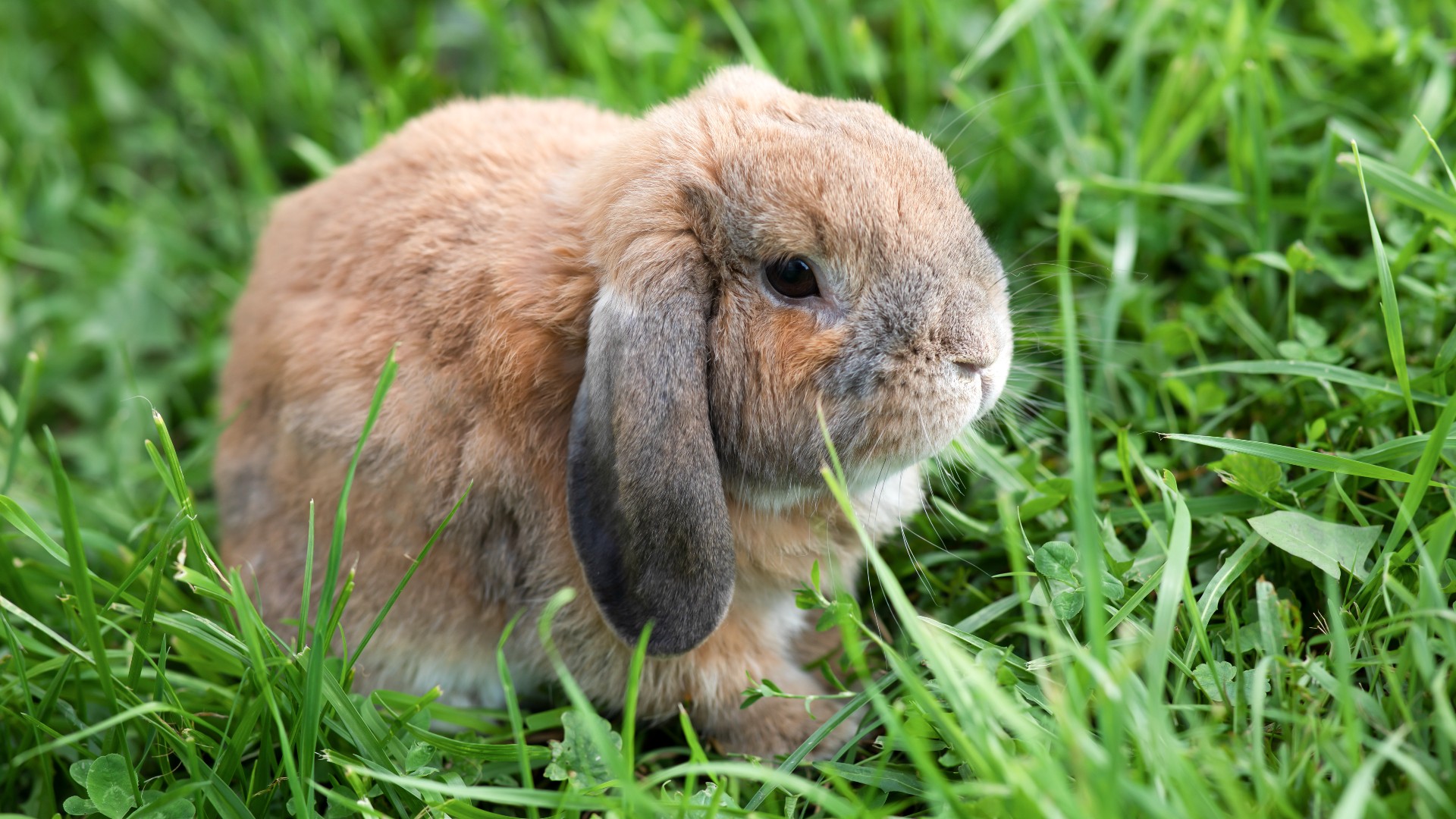
It is recommended that only experienced individuals clip rabbit fur. Rabbit skin is fragile and will tear or cut easily, causing pain and risking infection. Never use scissors. Ideally, longhaired rabbit fur should be kept short for health and welfare reasons. Contact your vet or a local groomer who has experience with rabbits.
Longhaired rabbits, and indeed all rabbits, should never be bathed. Rabbits find being placed in water stressful and such situations can cause the rabbit to panic, leading to skeletal fractures as they attempt to escape, or sudden, fatal heart attacks. Rabbit fur holds moisture, so it can take several hours or even days to dry properly, meaning the rabbit remains damp during this time.
Health and welfare concerns
Longhaired rabbits pose some very serious health and welfare concerns. If their fur is not kept knot-free, it will matt causing pulling and skin tears. Added to this, Angora rabbits especially, have thick, dense coats and cannot cope with warm weather if not clipped. They can suffer easily from heat stroke, which can be fatal. Matted coats can quickly become contaminated with urine and feces, attracting flies and leading to flystrike, which is often rapidly fatal.
Grooming must be carried out daily all year round, with clipping as and when necessary. Many longhaired rabbits will find this process stressful, even if it is introduced at a young age, and if the fur matts into a solid, large matt, the rabbit may need to be sedated by a veterinary surgeon so it can all be clipped off safely.
The ingestion of longer fur can also be a contributing factor in the development of fur balls. Rabbits cannot vomit – once they consume something, it only has one way of coming out! If rabbits consume large amounts of fur, as many longhaired rabbits do during their normal grooming or grooming a companion, this may cause a blockage within their digestive system, which can be fatal.
The housing of longhaired rabbits needs to be considered. Wood shavings will quickly become entangled in their fur, so if outside, they will need to be bedded on hay. Mesh floor housing should never be used. It is extremely uncomfortable and will cause sores to develop on their feet.
Oxbow Animal Health Western Timothy Hay All Natural Hay for Rabbits
This vet-approved hay will definitely be your bunny’s favorite. It is also good for them as it is high in fiber to aid in digestion and is 100% natural.
If you found this feature helpful check out 32 tips for taking care of rabbits.
Claire currently works in Kettering as a Head Nurse in a practice with a high rabbit caseload, as well as frequently lecturing and writing on rabbits to both veterinary professionals and owners.
- Alexis De LeaverDigital & Syndication Staff Writer
